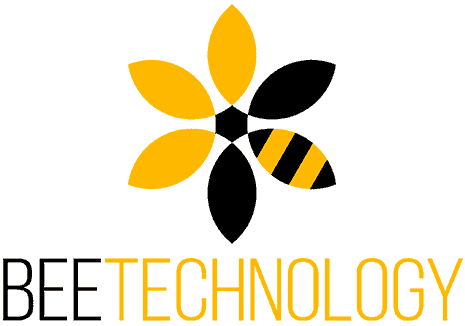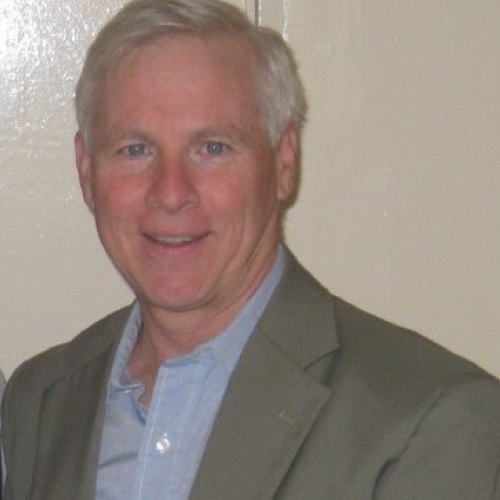Why did you start BeeTechnology and what did you study that led you to it?
I’m a biotechnologist by training, as well as the other three partners. One of the issues in my country is that a lot of science is done for research only and doesn't get applied anywhere. A lot of the challenges in the industry don’t connect industry with the science side and vice versa. One of the main things we wanted to do was to see something that we have researched being applied in the short-term.
We were doing a lot of neuroscience research in my university. The research in Parkinson’s and Alzheimer’s we thought were going to be useful in 20, 30 years from now. That was the path for neuroscience.
We found that we could apply biotechnology to the agricultural sector, which is also not very innovative. They take a long time to change the ways they do things. It was a challenge for us on how to use biotech in the agricultural sector, as well as for us to see the results; to be an actual product that could be used by the industry.
We first started developing this technology on bees, hence the name Bee Technology. We wanted to use phages to control a disease of bees, but we didn’t find any phages. We analysed over 800 samples of hives, and we found a set of bacteria that we mixed, and they produced antimicrobial peptides.
In summary, we have a consortium of bacteria that ferment a culture media and produce fermentation that has antimicrobial peptides, and we saw that it killed the bacteria that harmed honeybees, so we started with this technology.
...perhaps the theorical side works great but once you try to move into the practical side, it doesn’t work
We had a lot to learn when we stepped out of the lab. We first thought of applying our technology to hives with a spray. However, when we talked to beekeepers, they told us they would never, in a million years, spray their bees.
In the industry, you’ll learn that perhaps the theorical side works great but once you try to move into the practical side, it doesn’t work. So, you must pivot there. We then started mixing our fermentation with the honeybee’s feed to prevent the infection.
What do you feel are the biggest stresses of being a founder in the animal health industry?
I think one of the biggest stresses is that people are so used to doing things their way or the way that has always worked, that when you introduce them to new technology, you must be very certain on what you are selling them, what are the perks, and how to make them believe what you are saying.
In my case, I’m very young and in the animal health industry people tend to go with their gut. So, it is very stressful to meet people and hear them say “thank you for the technology, but we have been doing this for a while, we don’t want to change.” I believe that one way regulations are helping is that they are pushing the limits of what the best practices are.
For instance, people are very used to using certain chemicals and antibiotics in poultry production. Now, more governments and customers want to have cleaner productions or a more transparent way of doing things, they’re more open to changes, but still stubborn – which I understand, for how long have we been using livestock and doing things the same way!
The other stressful thing about being a founder in animal health is that my country is risk averse. For clients, the basic requirement for piloting a technology is having a patent, and an industrial trial, they want the product ready to go.
...founders from Latin America find it hard to get funding for biotech and life sciences.
One last thing is that all founders from Latin America find it hard to get funding for biotech and life sciences. To get someone to believe in what you’re doing or to believe in what you can achieve is something that can be quite stressful.
How do you get around that? Is it a lot more money to get those industrial trials?
We try to use as little money as possible and we want to be fiscally responsible. We try to make a lot of partnerships, assuring them with tests and results. We reach out to them through networking events. We started by trying to get connections from the bottom of the company’s hierarchy, and then trying to reach superiors, networking so we could get the tests and validation we needed.
What is your measure of success at the moment?
Right now, we use both business and technical metrics of success. On the business side of things is partnerships, the MOUs that we have signed, letters of intent, and generally picking someone’s interest.
When we presented at Boston Animal Health, we had the chance to speak with Elanco and Merck, who were interested in the technology and the possibilities of it. For us to have those companies interested in what we are doing is a metric of success because people are talking about us, and they are interested in what we are doing.
On the technical side it is just numbers, seeing how the technology works and how much we can improve the shelf life of poultry products or how we can decrease the bacterial loads in grains or meat. These are the metrics we use that have worked very well for us.
Have you had any Pivot Points during your Journey?
We started developing this for honeybees but in early 2020 we moved onto to poultry, grains, food wasted, and health. We had just been rejected by the IndieBio San Francisco Program because our market for honeybees was so small. It was under 1 billion – it wasn’t an attractive market for them. That was very harsh on us. We put a lot of work, and we were three biotech people. We had a scientific mindset but it was hard for us to grasp the commercial side of it. We thought it was over, we’d release the technology and sell it locally.
However, during 2021 cats and dogs in our country died because their food was contaminated with salmonella. It was because both grains and the chicken parts that made the pet. That set a regulatory crisis in Chile in which they had to increase the barriers for the quantity of bacteria allowed in pet food.
...does this work with other animal foods?
During an event, my cousin asked about our technology “Does this work with other animal foods?” I said yes and he connected me with our current partner, Raul, who has a packaging company valued at over 20 million dollars. He knew a lot of the issues that the industry was facing with shelf life and contamination.
When he met us, he said it was great what we were doing with bees, but he knew for sure there was a problem with the number of bacteria in food. That is how we pivoted the technology, although it is the same basic fermented antimicrobial technology.
Instead of doing it in the beekeeping industry we applied it to the whole of agri-foods to encompass bacterial control. We still have the same development, which is great for us because we don’t have to do harder R&D there. It was also a shot of hope for us.
It increased the market value of what we are trying to achieve. Now we have a very tangible issue, and a clear and monetizable problem. What we learned from that was that even if we were three biotech scientists, we needed someone with industry insight to give us what we needed to make, not only good technology but a good product.
Is that when you started seriously looking for funds and entering competitions, or did you try it before and it didn't work out?
Before that we only had the results with honeybees. After we added Raul to our company, he suggested we needed to carry out more tests. We did a bridge round and we raised $200,000. Thanks to that, we did the ecotoxicological tests in animals, so we knew that our technology was safe for use, as well as doing the pilots and proof of concept with the current collaborators.
Through that funding we got good results and our patent application. Now we have two patents granted. We count with the support of Ganesha Lab, which is an accelerator boutique through 2019 with bees, however they have collaboration with venture capital and angel investors.
In this round we didn't want to give away much equity so we kept it a small round. We decided to go for investors that were not in the industry but wanted to invest in the technology.
What do you think is in store for the next five years?
In the next five years we want to finish the products we are developing so far. We don’t want to have too many different products, but we want to be very certain in the product we do have.
We want to expand into other users because bacterial contamination is not just a problem in poultry. It is also an issue for a lot of food processing companies that must keep a certain standard. We have also seen bacterial issues in the water waste treatment industry.
We believe that with the right amount of focus in what we are doing we can expand our technology application because what we are developing is a technology platform. We kill bacteria, it only depends on what and in what way do you want to use it. We only know it is not therapeutic because it doesn’t go into the bloodstream, so it wouldn’t work well with pharma.
The idea is for us to gather as much data and validation on the commercial side as possible, so that we can transfer the technology in the future.
Who do you look up to as a founder and what would you like to see as a change in the market?
One of our advisors is one of the founders of Phage Lab. It is one of the companies here in Chile that recently had their seed around at 30 million dollars. He was also a scientist who got into the startup area. For us, he is a great advisor and role model.
Of course, we grew so much as a company, and we want to change as much of the industry as possible. I would like to live in a world where we have better ways to do things. We realized during the pandemic that a lot of the sanitary health status dropped in Chile. We have seen a lot of foodborne illnesses and mismanagement of food.
From my perspective, I’m very much an optimist regarding how we can do things later in life. I believe that technology is moving at a fast-pace thanks to COVID, because people have been investing a lot more in the biotechnology area, which makes it easier for us to apply technologies that were once very expensive to fix these issues in sanitary health for example.
Now they are much cheaper and accessible to the industry, you don’t want to make tech only for the premium side of things.





































